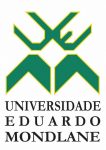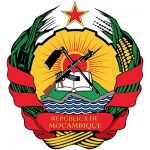project partners
The following project partners from academia and industry are working intensively on the development of the holistic energy supply concept across borders. Each partner is contributing special skills and local knowledge to jointly develop a concept.
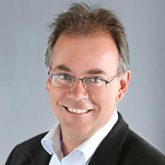
Professor Wilfried Zörner
(Project leader)
Professor Wilfried Zörner is the project lead of the SEED initiative. As professor of Product Development and Design at Technische Hochschule Ingolstadt, he has focused on research topics such on remote (off-grid) photovoltaics, solar heating and cooling, biogas and wood-fired power generation, especially in the international context. As founder and head of the Institute of new Energy Systems which is affiliated with THI, he has already cooperated with manifold local partners within international research and innovation projects on the African continent for 10 years.
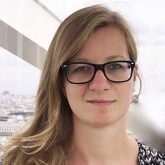
Rebekka Besner
Rebekka Besner, as a team member at THI, she works on the development of the technical concept for the renewable energy-based Energy-Hub. This includes the collection of local data, the creation of a suitable technical model, its subsequent simulation as well as optimisation and the final concept design (WP4 SEED Energy Concept). During her Master’s degree in Renewable Energy Systems, she has already worked on technical questions such as the creation of a renewable energy concept for an airport in Gambia. She is passionate about using and expanding the acquired knowledge in the SEED initiative.
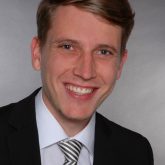
Alexander Domianus
As project manager of the SEED initiative and part of the THI team, Alexander Domianus supports the project lead Professor Zörner and the whole SEED team with regard to the overall project coordination. In this role he is the first point of contact for the SEED project team members and for external enquiries.
He holds a master degree in international relations and development politics. In the past, he has spent time in several countries in Sub-Saharan Africa, particularly working on issues regarding development and renewable energies.
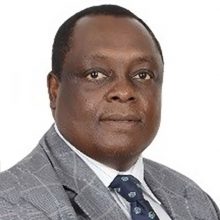
SEED gives the TU-K team the unique opportunity to interact with communities in target informal settlements to positively impact their livelihoods.
This will be achieved through joint development of technological as well as sociological interventions that address daily hardships and particularly those that limit the people’s ability and time to earn money through paid employment.
Professor Alex Munyasya Muumbo
TECHNICAL UNIVERSITY OF KENYA
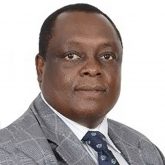
Professor Alex Munyasya Muumbo
Professor Alex Munyasya Muumbo is professor of mechanical engineering at the Technical University of Kenya and mentor at the Engineers Board of Kenya (EBK). With over 30 years’ experience in engineering academics and research, centred on Materials, Energy, Design, Additive/Subtractive manufacturing and Foundry engineering, he has also trained industry professionals. Through the SEED initiative, he envisages to positively contribute towards the provision of renewable energy-based engineering solutions that can support livelihoods, improve and economically empower communities. This will involve working with government institutions as well as non-governmental organisations to develop solutions to some of the perennial problems revolving around energy development and distribution in the informal sector.
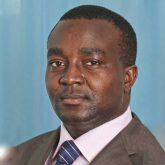
Professor Salesio Kiura
Professor Salesio Kiura has a background in computer science and currently heads the School of Computer and Information Technologies at the Kenya University of Technology. He is involved in WP 5 SEED Economy & ICT in the SEED initiative by contributing to the development of data collection tools, co-facilitation of workshops to identify potential economic activities and analysis of community services, to the assessment of business models for case studies, among others. His previously gained experience in mobile payment systems, Pay-As-You-Go (PAYG) models and sensor data management directly feeds into the initiative. Dr. Salesio Kiura also uses best practice information and communication technologies to adapt the SEED concept to the local context.
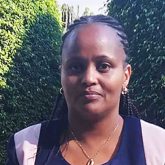
Dr Hellen Kabue
Dr Hellen Kabue is lecturer at Technical University of Kenya, School of Business and Management Studies. She holds a PhD and Master’s Degree in Business Administration, specialising in Marketing and Business Management. In the SEED initiative, she engages in the feasibility study to identify possible economic activities, analysing and defining appropriate business models of communal energy. Moreover, she is involved in identifying suitable financing models and payment systems and is in charge of defining training and skills development needs among the stakeholder involved.
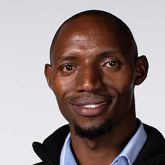
Joshua Ngetuny
Joshua Ngetuny is an assistant lecturer at Technical University of Kenya, Department of Chemical & Process Engineering. He is also the industry-based learning coordinator and responsible for the final year projects at the department. His research interests are waste-to-energy, renewable energy, computational process engineering. He is passionate about off-grid solutions for the daily energy needs of businesses and small farmers and in the SEED initiative he is thus involved in the collection, documentation and analysis of energy data in the informal settlements. Additionally, he contributes also to the analysis of business activities that can be supported by the Energy-Hubs as well as the validation of the proposed solutions.
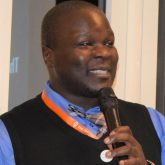
Luke Okelo
Luke Okelo is an assistant lecturer in Multimedia Systems Software Engineering at the Technical University of Kenya and is a reality and artificial intelligence Next Generation Computing Researcher pursuing his PhD research in Human Computer Interaction. Having worked in the Information Technology Industry in Kenya for more than 10 years, he aims to positively contribute to the development of visual training materials to facilitate interaction with the local community using visualizations of the renewable energy solutions integrated in the developed concept of the Energy-Hub. These visualizations will greatly benefit people in the informal settlements to better understand the benefits of renewable energy.
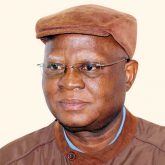
Professor Boaventura Chongo Cuamba
Professor Boaventura Chongo Cuamba is a full professor of Renewable Energy Systems at the Faculty of Sciences of Eduardo Mondlane University and leads the Energy Research Centre there. He has been leading various research/development/consultancy activities in the fields of energy, environment and climate funded by institutions like SIDA, NORAD, USAID, WB, EU, Enabel, GIZ, and AfDB, among others. He is a member of the German Physical Society (DPG), of the British Institute of Physics (IoP) and of the International Solar Energy Society (ISES), among other organisations. In the SEED initiative he is in charge of analysing the boundary conditions of typical informal settlements in terms of energy demand and actual consumption among other things.The SEED project team during a field trip to settlements in Maputo
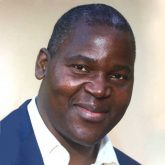
Professor Alberto Júlio Tsamba
As Professor Alberto Júlio Tsamba teaches classes in Energy and Environment at the Faculty of Engineering and the Energy Research Centre at UEM. He has researched and consulted different research initiatives funded by national public and private entities (such as governmental entities, FUNAE, EDM, KPMG, FNI) as well as by international donors such as SIDA, NORAD, NUFFIC, CIDA, BTG, GIZ, AfDB, WB, UNEP, CEEZ, DFID. Apart from these activities, he is the Vice-President of the Mozambique Board of Engineers (OrdEM), presides over the Sustainable Energy Consortium at the International Science Council-Regional Office of Africa (ISC-ROA) and the FUTURE EARTH Regional Office of Southern Africa Steering Committee (FEROSA).
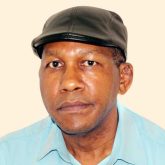
Professor António Leão
Professor António Leão is teaching primarily Solar Thermal Energy at the Faculty of Science at UEM and he is also the director of the master programme on Renewable Energy Science and Technology.
He has been actively involved in various research/ development/ consultancy/ management activities in the fields of solar and nuclear energy, funded by different organisations such NUFFIC, DANIDA, SIDA, NORAD, WB, EU, Enabel, GIZ, IAEA.
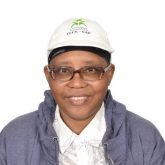
Professor Inês M. Raimundo
Professor Inês M. Raimundo leads research on Migration and Food Security besides teaching at UEM. In addition, she has taught the Module of Energy and Gender at the Master Program in Science and Technology and Research Methods of the Systems Management of Renewable Energies. In the SEED initiative, she is in charge of social aspects especially related to WP2 Informal Settlements Communities & WP3 Local Energy Background Analysis. Furthermore, she is in charge of the data collection in one of the Maputo neighbourhoods.
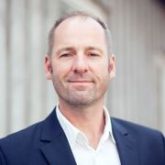
Professor Eberhard Rothfuß
Professor Eberhard Rothfuß is leading the team of UBT. He is professor of Social and Population Geography at UBT and currently involved in the third-party projects Cluster of Excellence “Africa Multiple,” PROCEED, LoSAM and SEED. His main areas of research focus on social-and development geography, urbanity in the Global South, phenomenology of space, critical theory and qualitative spatial methodologies.
In Work Package 2 Informal Settlements Community of SEED, the socio-geographical perspective on community building, collective action and place making in neglected urban neighbourhoods of Nairobi and Maputo serves as the main thematic fields and methodological interests of his social science research.
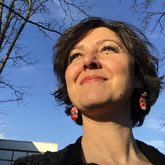
Özge Dolunay
Özge Dolunay is a doctoral researcher at the Social and Population Geography Chair at UBT. She is an Environmental Engineer and received her first MSc degree in Sustainable Resource Management from Munich Technical University and her second MSc degree in Renewable Energy Systems from Vienna University of Technology. She wrote her master’s thesis on the permitting and licensing processes of solar and wind energy systems in Turkey and worked as a Consultant in Solar PV Projects. Her main areas of research focus on the renewable energy governance, interdisciplinary energy projects and sustainable rural development. Özge Dolunay perceives SEED as an innovative local solution for off-grid areas which brings more creative benefits to the people living in informal settlements.
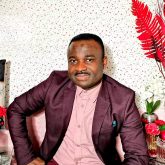
Dr Festus Boamah
Festus Boamah is a Post-Doctoral Fellow at the Universität Bayreuth. His research focuses on Biofuel Land Grabbing; Geographies of Energy (In)justice, Self-organisation of Energy and State-society relations; and Energy sector Corruption in Africa. His interest in the SEED project is double-edged. On the one hand, he intends to understand why the type of electrification regime and spatial delimitation strategy in the organisation of grid infrastructure cause, reinforce, and/or reduce bureaucratic neglect of informal settlements and remote geographies in the electricity service provision. On the other hand, he examines how and why underprivileged residents in unjust geographies enact self-organised, unsanctioned grid connections and other clandestine practices as justified remediation responses to (perceived) entrenched energy injustice. These top-down and bottom-up electrification options have implications for the achievement of universal energy access visions of the state and human capability enhancements. These crucial issues are worth investigating.
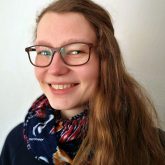
Mira Rodrian
Mira Rodrian is a Global Change Ecology (M.Sc.) student at UBT. She has a background in International Relations, Social Sciences, and Economics. Her research focuses on questions of justice and interdisciplinary perspectives on climate and environmental change. She currently works for a programme that promotes renewable energies in Sub-Saharan Africa. SEED interests her because it is dealing with the nexus of social and environmental questions and at the same time seeks to develop sustainable solutions in cooperation with a multitude of international stakeholders. In 2022, she will visit the partners in Nairobi to do research and dedicate her Master thesis to questions related to the SEED initiative.
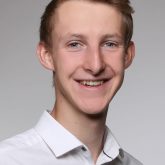
Paul Marques Lindner
Paul Marques Lindner is studying Human Geography at the University of Bayreuth with a focus on urban and regional studies and has participated in internships and study visits in South Africa, Ghana, Brazil, and Portugal. His interests include social and cultural geography, qualitative research, post-colonial studies, migration, and urban planning. As part of the SEED project, he will conduct field research for his master’s thesis on urban life-worlds with regard to individual and collective energy visions and practices as well as the relations between civil society self-organization and state authority in the neighborhood of Magoanine in Maputo, Mozambique. He is excited to take part in an international and interdisciplinary team that works on a practice-oriented and innovative project in the context of just energy transition.
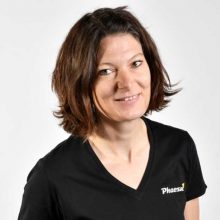
Through SEED, we strive to give people tools to make themselves independent of existing structures.
Géraldine Quelle
Phaesun GmbH
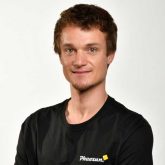
Florian Martini
Florian Martini has a Master’s degree in industrial engineering with specialisation in renewable energies focusing on photovoltaic systems. Working for Phaesun on an EU development project, he gained extensive experience in the design and installation of systems in various African countries, which he now intends to contribute to the SEED project.
He is delighted to support the SEED project with this know-how and to bring forward the idea of Energy-Hubs in informal settlements, as providing inhabitants with tools to generate their own income and to become independent is crucial.
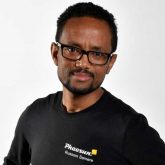
Russom Semere
After working as a solar installer in Eritrea, Russom Semere came to Germany for a Master’s degree in renewable energy systems. Since 2010, he has been working for Phaesun as an engineer for off-grid power supply projects in Africa. He is convinced that the more our partners around the world learn about the enormous potential of renewable energies, the higher is the potential for development!
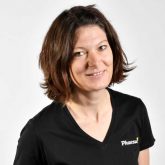
Géraldine Quelle
Géraldine Quelle has been focusing on rural electrification in the Global South since her Master’s degree in sustainable energy technology. For the past 10 years, she has been in charge of collaboration and research projects at Phaesun.
As off-grid PV systems offer unlimited possibilities technologically, she wants to help ensure that energy concepts are most adapted to the needs of users within the SEED project.
associated partners
The project consortium will work with several other partners in the project implementation to develop the best possible concept.
During the project planning phase, a number of potential partners have already been contacted and have expressed their support for the SEED initiative. The logos of those expressing their support in the project implementation are shown below.
In the course of the project, the project consortium introduced above will collaborate with additional partners contributing to the concept development.

